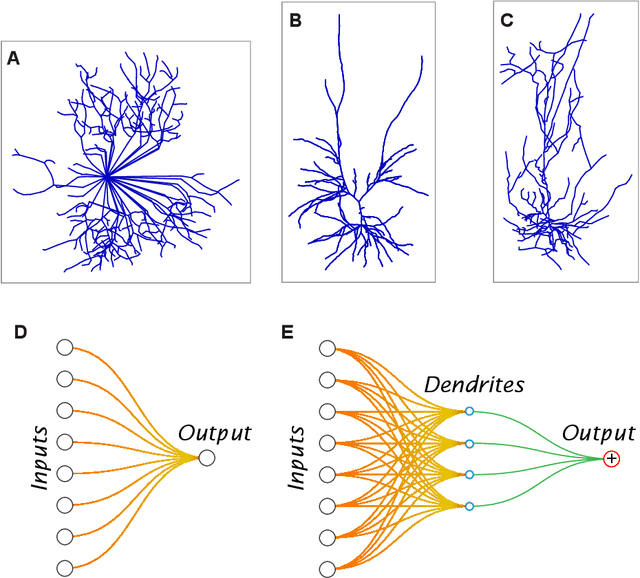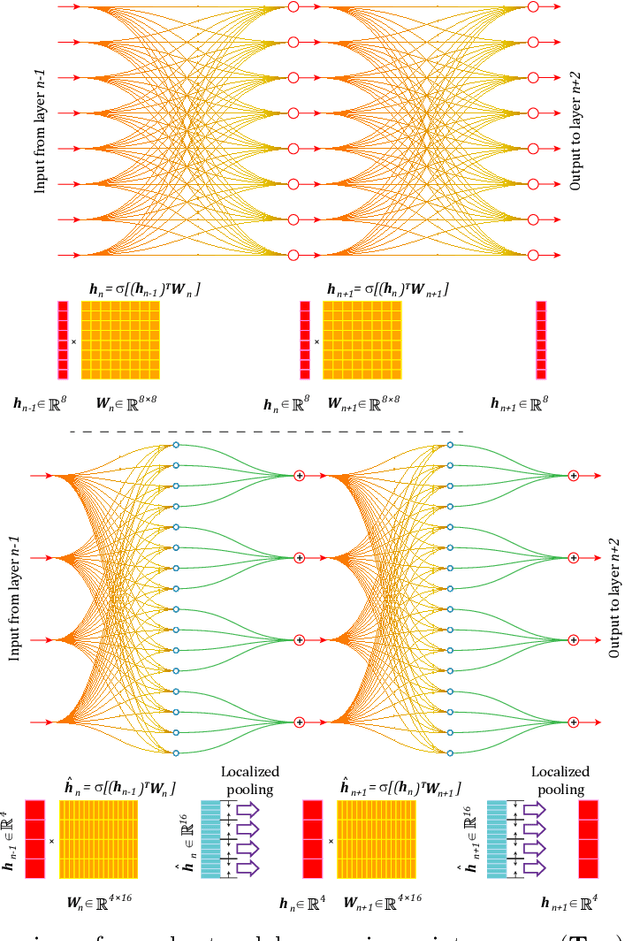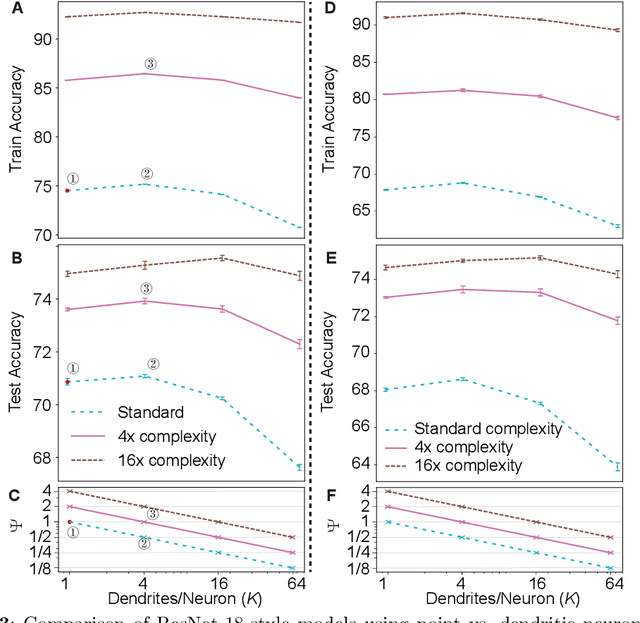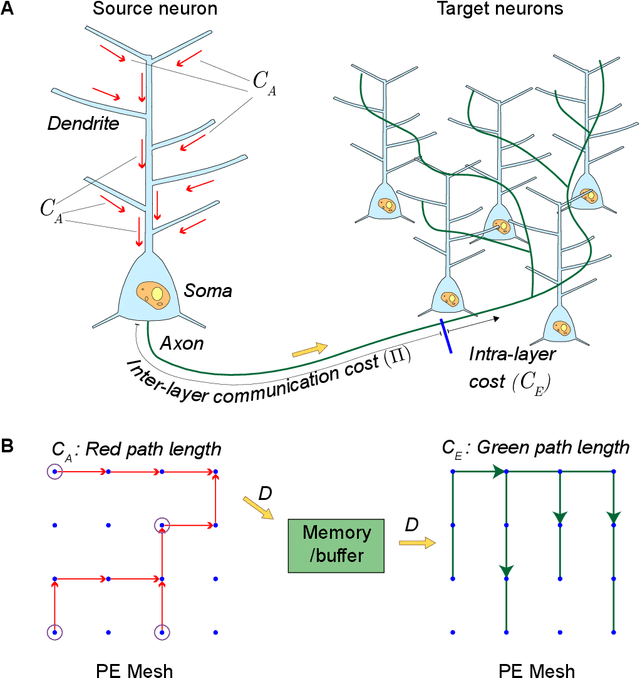Zilin Yu
Mitigating Communication Costs in Neural Networks: The Role of Dendritic Nonlinearity
Jun 21, 2023



Abstract:Our comprehension of biological neuronal networks has profoundly influenced the evolution of artificial neural networks (ANNs). However, the neurons employed in ANNs exhibit remarkable deviations from their biological analogs, mainly due to the absence of complex dendritic trees encompassing local nonlinearity. Despite such disparities, previous investigations have demonstrated that point neurons can functionally substitute dendritic neurons in executing computational tasks. In this study, we scrutinized the importance of nonlinear dendrites within neural networks. By employing machine-learning methodologies, we assessed the impact of dendritic structure nonlinearity on neural network performance. Our findings reveal that integrating dendritic structures can substantially enhance model capacity and performance while keeping signal communication costs effectively restrained. This investigation offers pivotal insights that hold considerable implications for the development of future neural network accelerators.
PP-OCR: A Practical Ultra Lightweight OCR System
Oct 15, 2020



Abstract:The Optical Character Recognition (OCR) systems have been widely used in various of application scenarios, such as office automation (OA) systems, factory automations, online educations, map productions etc. However, OCR is still a challenging task due to the various of text appearances and the demand of computational efficiency. In this paper, we propose a practical ultra lightweight OCR system, i.e., PP-OCR. The overall model size of the PP-OCR is only 3.5M for recognizing 6622 Chinese characters and 2.8M for recognizing 63 alphanumeric symbols, respectively. We introduce a bag of strategies to either enhance the model ability or reduce the model size. The corresponding ablation experiments with the real data are also provided. Meanwhile, several pre-trained models for the Chinese and English recognition are released, including a text detector (97K images are used), a direction classifier (600K images are used) as well as a text recognizer (17.9M images are used). Besides, the proposed PP-OCR are also verified in several other language recognition tasks, including French, Korean, Japanese and German. All of the above mentioned models are open-sourced and the codes are available in the GitHub repository, i.e., https://github.com/PaddlePaddle/PaddleOCR.
 Add to Chrome
Add to Chrome Add to Firefox
Add to Firefox Add to Edge
Add to Edge